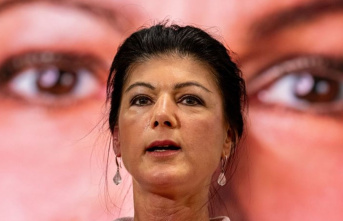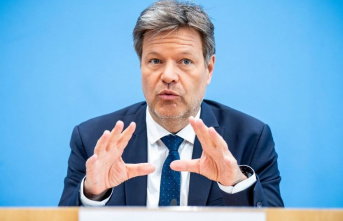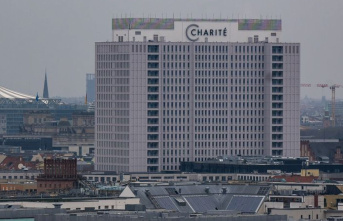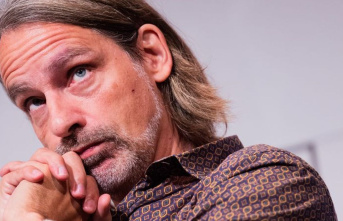The push from Schleswig-Holstein for a possible lifting of the mask requirement in buses and trains at the turn of the year has met with criticism and approval. SPD and Greens representatives in the federal government rejected the plans - the government partner FDP, on the other hand, welcomed them. Other federal states initially reacted rather skeptically to the proposal from Kiel and advocated a common approach so that there are no different mask rules in Germany.
The federal states can decide for themselves in local transport whether there is a mask requirement there, which has been the case everywhere so far. The federal government is responsible for long-distance trains and long-distance buses. According to the current Infection Protection Act, FFP2 masks are mandatory here until April next year. Schleswig-Holstein announced on Friday that it might not extend the obligation in local transport in the north beyond the end of the year. Now a debate has broken out.
Lauterbach: "Not employable"
According to a spokeswoman for the Federal Ministry of Health, the federal government has so far not considered lifting the mask requirement on long-distance trains and buses. It is necessary, Health Minister Karl Lauterbach (SPD) told the broadcaster “Welt”. "If we were to suspend the mask requirement now and then have a massive wave, for example, that cannot be communicated." People should be able to get to work safely.
You can't compare that with air traffic - where masks are no longer compulsory. Only very few people come to work by plane every day, but millions by bus or train.
The ministry spokeswoman said about the considerations in Schleswig-Holstein: It is now mid-November. “None of us can yet judge what the infection situation will be like at the end of December, what the situation in the hospitals will be like, not even in Schleswig-Holstein.”
FDP: "Mask recommendation instead of mask requirement"
A spokesman for the FDP-led Federal Ministry of Transport, on the other hand, said that the federal states should decide on the basis of current developments. From the point of view of the ministry, it is also reasonable to rely on voluntariness if there is a relaxation.
The FDP health expert Christine Aschenberg-Dugnus welcomed the easing initiative from the north: In times of declining corona numbers and a high degree of immunization of the population, a mask requirement in local transport is no longer justified. "Should other countries follow suit, I see it as a federal government obligation to introduce a mask recommendation in long-distance transport." The health policy spokesman for the FDP parliamentary group, Andrew Ullmann, spoke in the “Welt” of a “mask recommendation instead of a mask requirement”.
"No new, medically evident reasons"
The idea met with criticism from the Greens. “There are no new, medically evident reasons why there should now be a deviation from the previous statutory separation and isolation requirements or the requirement to wear a mask in local transport,” said the health policy spokesman for the Greens in the Bundestag, Janosch Dahmen, the “Welt”.
Lower Saxony's Prime Minister Stephan Weil (SPD) said in Berlin: "We are happy that we currently have the situation well under control. But especially with a view to the cold season, we do not believe that we can still take the low level of protective measures should go further down." The Bremen health administration is also skeptical. The mask on buses and trains is “a low-threshold regulation that has been practiced for a long time and protects well,” said a spokesman for “Radio Bremen”. It is not intended to change anything in the regulation.
In the most populous federal state of North Rhine-Westphalia, no easing is planned at the moment either. “The federal government currently requires a mask to be worn in long-distance transport, so that we are also sticking to the mask requirement in public transport in North Rhine-Westphalia,” said State Minister of Health Karl-Josef Laumann (CDU) of the “Rheinische Post”. If the infectious conditions change, the federal and state governments should agree on changes together, he demanded.
Mecklenburg-Western Pomerania's Prime Minister Manuela Schwesig (SPD) also called for a uniform approach. "Because we know the discussion among the citizens. They don't understand when it's like that in one country and like that in the other country," she said in Berlin.












